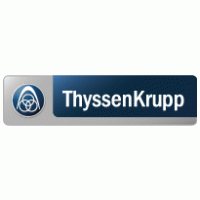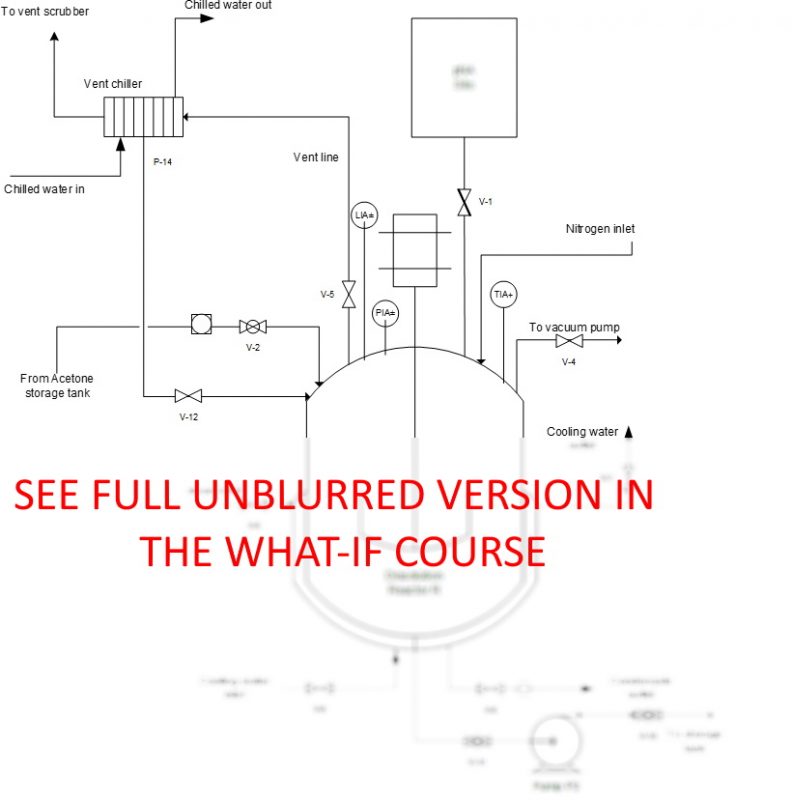What-if Analysis | Safety Risk Assessment Online Course
Learn how to carry out Hazard and Risk Assessment in the process industry by using the What-If Analysis technique (also called SWIFT-Structured What If Technique).
Get Certified.

A What-If Analysis Safety Risk Assessment is a structured brainstorming technique used to carry out hazard analysis and risk assessment in the process industries such as Oil & Gas, Chemicals, Power Generation and similar facilities. A What-If Analysis can help formulating and asking the right questions to correctly identify not only hazards, but also consequences of undesirable events. This is a quick way to carry out Hazard Analysis and Risk Assessment of new as well as old facilities.
Hazard and Risk Assessment techniques in the process industries can be carried out by a variety of methods including What-If analysis, Checklists, HAZOP and so on.
This online Abhisam What-If Analysis Safety training course is the only training course that explains this technique in an easy to understand way. The course also includes an actual Case Study of a Risk Assessment for a new chemical facility, using only the What-If Analysis method. What’s more, if you take the associated exam and pass it, you will also earn a Certificate and an Electronic Badge.
Key Benefits of the Course
- Self Paced Course, learn at your own speed, whenever you wish.
- Includes actual case study of a What-If analysis
- Get Downloadable What-If Worksheet Templates
- Access from any device PC/laptop/Mac/Tablet-no restrictions.
- Includes Online Exam and Certification.
- Prove your competency by displaying your electronic badge online on social media.
- Full fledged e-learning course- Its not a video of a guy speaking or a What-If analysis pdf or a PPT.
Earn a Certificate and electronic badge that you can display online.
Customer Review
“I have worked in the International Oil and Gas Industry as a technical instructor for more than thirty years. I have both used and recommended the products of Abhisam. I recommend them highly to all engineers and technicians in our industry. No praise is too great!!
John Longden
GCGI LCGI. Senior Trainer
Petroleum Training Institute, UK“
Who takes Abhisam Courses?
Engineers and technical professionals from marquee companies take Abhisam training courses to learn new skills and get certified.





Get real world experience of conducting a What-If analysis by exploring our Case Study. Here you will learn a Step by Step method of applying this technique.
Download the What-If Analysis Worksheet templates, so that you can start carrying out own What If analysis for Risk Assessment immediately.
The included self assessment test enables you to understand your own level of knowledge about the topic and helps in preparing for the Certification exam.
Here’s a sample question from the test.
Real Life Case Study Included
A real life case study of a project is included. It will have
- Introduction of the project-video
- Study of the P & ID and the Standard Operating Procedure.
- Hazard Analysis questions using What-If analysis methodology for Production, Utilities, Human Errors, Accidents.
- Filled in worksheets that show you how these hazard analysis what-if questions are answered and handled.
- Understand using a Risk Matrix with the What-if questions
- Understand the recommendations.
- Develop a modified design (modified P & ID) after the What-if Hazard Analysis.
Standard
For one learner-
Course Duration: 8 hours of self paced learning (Earn 8 PDH)
-
Access the course online 24/7 via any device for one year
-
Exam & Certification for one learner
-
Lifelong Valid Certificate
Get Trial Access to all Abhisam courses, including this What-If Analysis course for $7.
You will NOT be billed automatically after trial ends.
Trial access will grant you ability to view the first few number of modules in every course.
Table of Contents
- Welcome
- Introduction
- Introduction to Hazards & Risks
- Comparison of Risks
- Risks in the Process Industries
- Risks in the Nuclear Industry
- Hazards in the Workplace
- Risk
- Risk Assessment
- Example-1
- Risk Assessment
- Risk Reduction
- Measuring Risk
- Risk Assessment Process
- Risk Assessment is Iterative
- Thank You
- Introduction
- Types of techniques
- Semi Quantitative Techniques
- Quantitative Techniques
- Types of Risk Assessment Methods
- Qualitative Risk Assessment methods
- Qualitative Studies
- Semi-quantitative
- Risk Assessment methods
- Semi-quantitative Studies
- Quantitative Risk Assessment methods
- Quantitative Studies
- Thank You
- Welcome
- Introduction
- What-If Questions
- Example-Sodium Hypochlorite
- What-If Questions for NaOCl
- What-If Questions
- Conducting What-if Analysis – 1
- Steps in What-If Analysis
- Steps in What-if Analysis-2
- Steps in What-If Analysis-3
- Sample What-if Questions for Human errors
- Sample What-if Questions for Utilities
- Sample What-if Questions for Process Deviations
- Sample What-if Questions for Accidents, Emergencies, personal protection
- A sample what-if worksheet – 1
- Risk Matrix
- Understanding the Risk Matrix
- More about the Risk Matrix
- Consequence Class
- Likelihood Class
- Risk Levels
- Filling the Worksheet
- Benefits of What-if Analysis
- Limitations of What-if Analysis
- Comparison between HAZOP and What-if
- Thank You
Here, we will do a full Case Study using the What-If Analysis method. Here is the overview of the things that you will learn.
- Welcome
- Introduction to the Case Study
- ABC Industries What-If Session Video
- Case Study – pNA dissolution
- P&ID of pNA dissolution
- Standard Operating Procedure
- Worksheet – Process failures
- Worksheet – Human failures
- Worksheet – Utility failures
- Worksheet – Accidents
- Analysis
- Modified P & ID
- Thank You
Here you can take a Self Assessment Test to know how well you have understood What-If Analysis.
You can also use this to prepare for the Certification Exam.
Why should you learn What-If Analysis?
How many PHA methods do you know?
When one talks about PHA (Process Hazard Analysis) people generally assume that you are taling about HAZOP (Hazard and Operability Study). However Process Hazard Analysis can be done by several methods and at several different stages of the plant’s lifecycle. The most commonly accepted Hazard and Risk Assessment method, which can be called as a subjective method is HAZOP, but it is not the only one. We also have What-If analysis, Checklists, HAZID which are also good subjective methods. However, there are either no or very few formal training courses out there that cover these.
What are the advantages of using What-If analysis?
There are several advantages to using What-If analysis as a Risk Assessment method, as compared to something like HAZOP, for instance. What-If analysis is relatively simpler to carry out, can be done faster and once you have developed the worksheet and questions for one project, usually they can be simply carried over to another project with only a few changes.
Knowing the What-if method is essential if you are a Process Safety Professional, so that you have a balanced understanding of all the different risk assessment methods.
Can I not get this information free from elsewhere?
There is a myth “Just Google it”
Unfortunately it is not true. If you Google for it you are likely to get a number of What-If analysis related articles, pdf documents, presentations, articles and other material.Not all of it will relate to what you are actually searching for (What-If analysis safety related stuff), as it will also include stuff related to Excel spreadsheet techniques (nothing to do with safety or risk assessment).
It will take you a long time to go through it to find something that you think is useful and at the end of the day you may
a) Not be able to string it all together-most information on the internet is in bits and pieces (although large ones). It is not put out there as a logical construct or in any sequential manner. This is to be expected since it is all from different sources who may have different interests.
b) Be more confused than what you were before you started searching for it.
c) You may not be sure that whatever information you get is current (updated) and authentic. It will certainly not have actual cases or worksheet templates.
d) You will not be getting any certificate for your efforts.
Plus you will spend several hours of your time doing all this for zero returns on your investment!
On the other hand, when you take this Abhisam What-If Analysis training course, you know that
a) It is very carefully made, with subject matter experts in the field of PHA including HAZOP, What-If, LOPA and other techniques.
b) Utilizes animations and simulations to help you understand concepts real quick. These are not available anywhere else.
c) Get access to a real life Case Study, that clearly shows you how to carry out a real life What-If Safety risk assessment study
d) Earn a Certificate when you pass the associated exam and also get an electronic badge that can be displayed online on places such as LinkedIn. Get Noticed as an Expert!
Can I not simply buy a book? That will be much cheaper!
Of course, you could always pass this up and decide to go for buy a book on this topic,
but,
remember that there are some disadvantages with this approach
a) The first is that not a single book is available on the market, that covers all the topics that you need to know. On the other hand, there are a lot of things in every book, that you can safely skip, without missing anything.
b) Some of these books may be outdated and obsolete as the standards may have got updated, but the book may not have been updated.
c) Watching an animated simulation makes you grasp a concept much faster than merely reading about it. (A picture is worth a thousand words and an animation is worth a thousand pictures)
d) Nobody gives you a certificate if you simply read a book.
What does the $7 trial include?
The $7 trial includes trial access to ALL the courses in the Abhisam Catalog, including the What-If course, for a limited time.
Your card will not be billed automatically.
Related Courses & Whitepapers
HAZOP Professional

Become a HAZOP Professional when you take this Abhisam HAZOP Training Course and pass the associated exam.
This acclaimed self paced e-learning course is the fastest and easiest way to learn about Hazard and Operability Study technique. Taken by hundreds of professionals from leading organizations all over the world, this is the only course out there that covers CHAZOP, Human Factors HAZOP, Boolean Logic as applied to HAZOP and more!
FREE Hydrogen Sulfide Training Course!

Take this FREE Hydrogen Sulfide Online Course and learn all about H2S including properties, precautions to be taken while working in H2S atmosphere, engineering controls for handling H2S and more.
Optional (paid) Certificate available.
Questions?
Contact Us by filling the form below OR call us OR email
